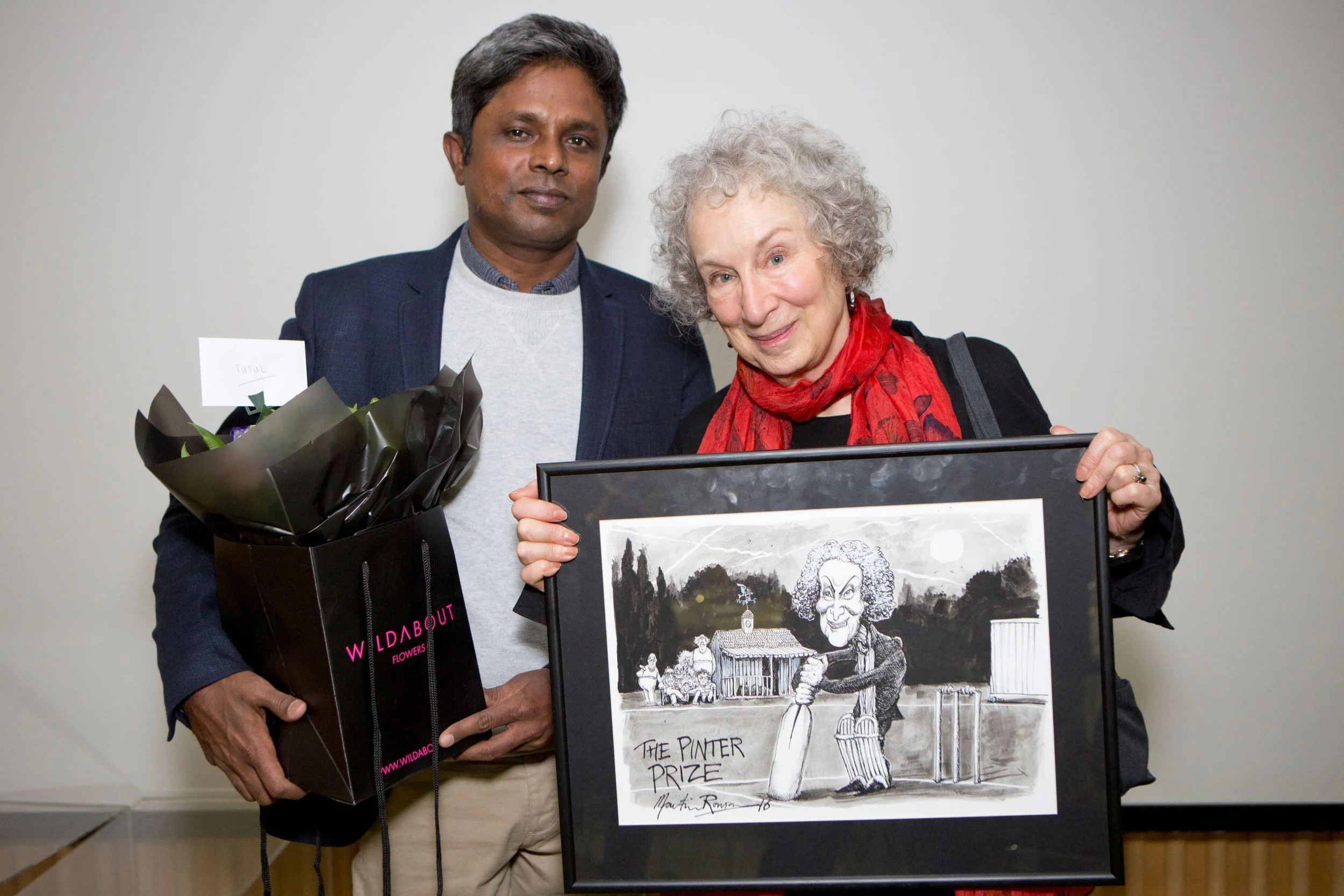Fifty Years of the PEN Emergency Fund: from couriers to bank transfers
Publisher Ahmedur Rashid Chowdhury (aka Tutul), here pictured with Margaret Atwood, is one of the many writers supported by the PEN Emergency Fund.
The PEN Emergency Fund was founded on January 13, 1971 by the Dutch author A. den Doolaard. The fund's raison d'être was a very practical one: something was missing in the concept of P.E.N., namely financial support for writers in emergency situations. Writers need not only moral and literary support, not only resolutions and understanding, but also money, for example, to flee, or to rebuild their lives after mistreatment or detention. The fund provides assistance to professional writers, journalists, editors and publishers, anywhere in the world, because of what they have written or published and urgently need money.
In almost all cases, applications come in these days via the Protection Team Writers at Risk of PEN International, a team of experienced researchers with whom the fund cooperates closely. Applications also include writers awaiting long-term placement at ICORN. The board work of the fund is voluntary and there are no buildings to maintain. All the money that comes in, will go to the authors in need. Because the board consists of a few members – and that is an important thing - it can act quickly and sometimes transfer money on the day of application. The board members at this moment are René Appel, Job Degenaar (president), Wim Jurg (treasurer) and Paulien Loerts.
The fund had a very good start in the early seventies. Heinrich Böll, the German author and president of PEN International, gave in 1973 some of the money he received for his Nobel Prize for Literature. In those days donations to writers in need were delivered and handed over personally by couriers from the Netherlands, sometimes in a special way. Den Doolaard for example mailed to a boycotted Czech author one half of a playing card that had been cut in two. The other half was given to a courier who, in this case, was a Dutch author whose work had been translated frequently. She was hand-delivering her new manuscript to the Prague (state) publisher and would be visiting a colleague. When the two met and the two halves of the card fit, each knew that this was the right person. The use of couriers became soon outdated and was laborious, time-consuming and costly. Nowadays the bank system and e-mail traffic have made it much easier and quickier to reach and support writers globally who are in dire straits. In recent years the number of applications became about 30 to 35 per year.
The financial support through the years from organisations and generous private individuals like PEN International, PEN Netherlands and its members, loyal PEN centres worldwide and NGO's like LIRA Fund, Foundation Democracy and Media and Oxfam Novib, made it possible to survive. In those 50 years the fund has been of great importance to persecuted writers and even saved lives.

